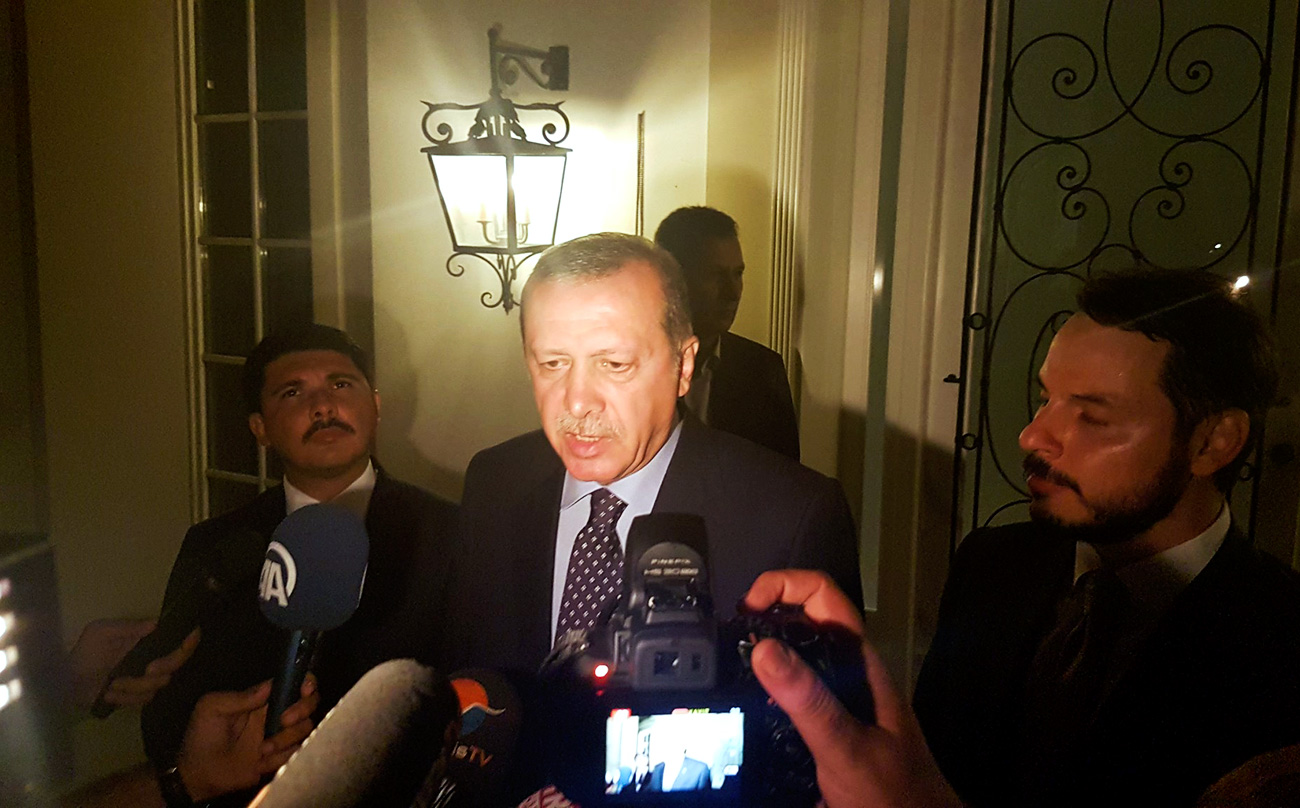
Turkish President Tayyip Erdogan speaks to media in the resort town of Marmaris, Turkey, July 15, 2016.
ReutersIt has been 36 years since the last military coup in Turkey, which took place in 1980. Now President RecepTayyip Erdogan has provoked another putsch, having plunged the country into chaos and undermined its prestige on the international arena. Why did the military decide to revolt against the Turkish leadership?
Firstly, there is a serious ideological conflict between the army, which has been traditionally considered a guarantor of the secular nature of the Turkish state, and the incumbent Islamist authorities.
For a long time it seemed that Erdogan, who is pursuing a policy of a creeping but inexorable Islamization, had the upper hand, after suppressingthe resistance of the generals, forcing them to resign themselves to giving up the secular principles of Kemal Atatürk, and getting rid of a “fifth column” in the midst of the armed forces, having “purged” the officer corps through a series of large-scale court trials. It turns out this was not quite the case.
Secondly, from the point of view of many residents of Turkey and a considerable section of its elite, the president bears responsibility for destabilizing the domestic political situation in the country. Society is split, as was testified by the mass protests in 2013. Yet the authorities stubbornly refuse to listen to their opponents and are implementing the social mandate only of their voters, who represent about half of the population.
Thirdly, Erdogan has in effect provoked a resumption of a civil war in Turkish Kurdistan. In the opinion of many Turkish politicians and Kurds themselves, it was his actions that triggered a flare-up in hostilities and wiped out years of efforts to establish a peace dialogue. As a result, the country has found itself in a state of war, although just a couple of years ago there were neither reasons nor preconditions for this.
Fourthly, in its foreign policy the Turkish leadership has managed to ruin relations with practically all the key global and regional players. The diplomatic results of Erdogan's rule are dismal.
The events in Syria are following a scenario that is absolutely at variance to Ankara was counting on. In Egypt, Erdogan's protégé, Islamist Mohamed Morsi, has been ousted.
Relations with the EU are ruined, as evident from Germany's decision to recognize the 1915 Armenian genocide and the Turkish leader's hyperemotional, bordering on unacceptable, reaction to it. Turkey has practically no chances of joining the EU in the foreseeable future, whereas it is this goal that the country's leadership has been proclaiming for several decades.
The Kurdish issue has caused serious tensions with the United States, while the downed Russian bomber has provoked an unprecedented crisis in relations with Moscow, which only recently was considered to be Turkey's key partner. As a result, Ankara, which once proclaimed the principle of “zero problems with neighbors” has been left practically without any allies in the region, with the exception of Azerbaijan perhaps.
It would appear that all these circumstances have prompted the Turkish president's opponents into decisive action. Some of the military may have come to the conclusion that time has come to save the country from a man whose policies are destroying it, leading to its split and a possible break-up.
First published in Russian in Kommersant
The opinion of the writer may not necessarily reflect the position of RBTH or its staff.
All rights reserved by Rossiyskaya Gazeta.
Subscribe
to our newsletter!
Get the week's best stories straight to your inbox